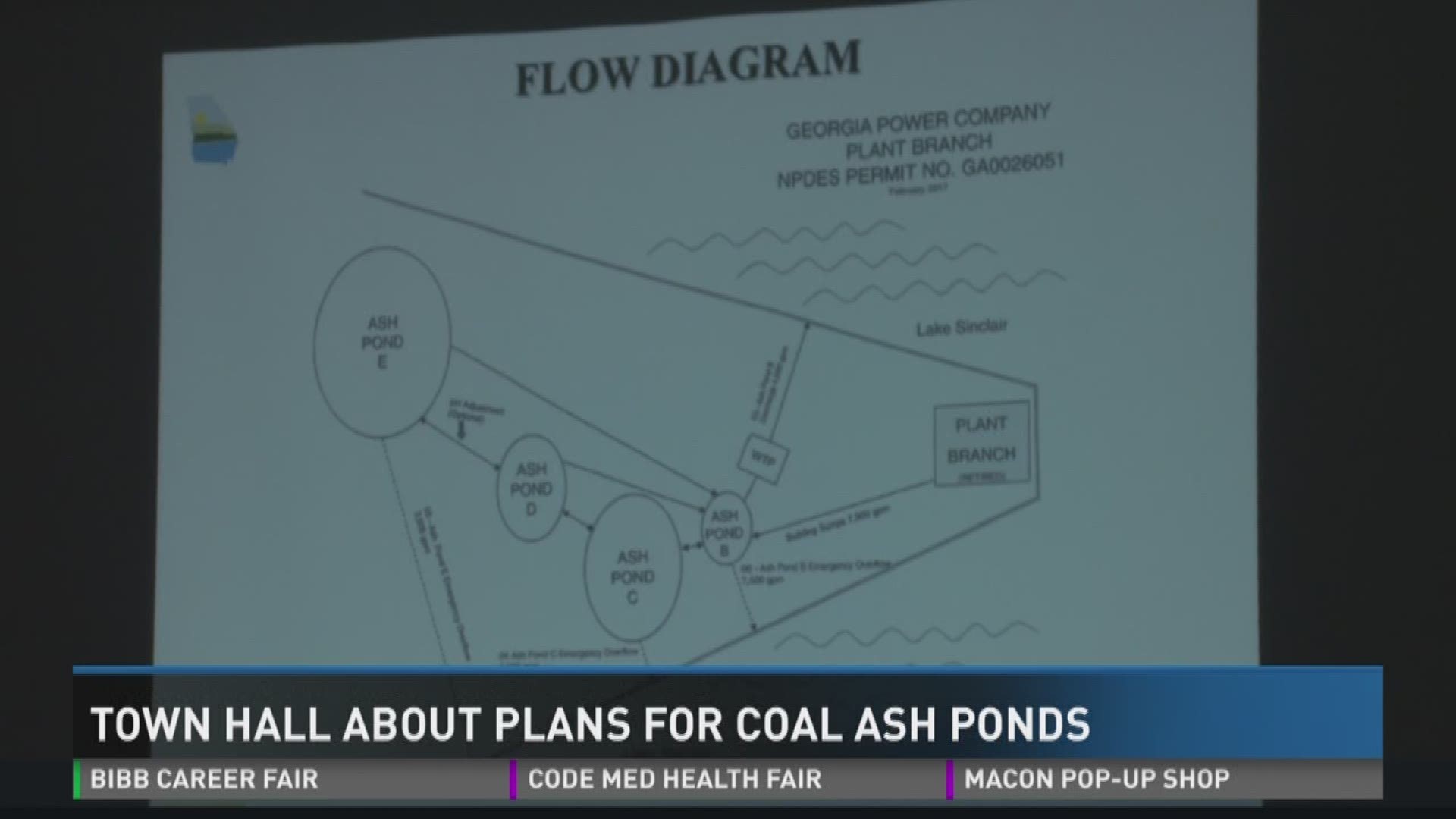A town hall meeting got heated Saturday as residents around Lake Sinclair voiced their opinions about Georgia Power's Plant Branch and their plans to move coal ash surface water into the lake.
It was a packed house and everyone in attendance came to hold Georgia Power accountable for their plan to consolidate its five ash ponds.
Representative Rick Williams says addressing this issue should help alleviate some people’s fears.
“Georgia Power won't be putting just a pump into the ash pond and pumping it into the lake. It's going to go through a filtration process and it's going to be probably cleaner than the rainwater that's falling into the lake,” said Williams.
But many people, like Michael Wisnyai, are afraid it may move toxic waste into Lake Sinclair.
“I don't know where they are going to put it…maybe people in this area need to accept that we are going to have a dump site or landfill where this stuff could be put, but it needs to be way away from the water,” said Wisnyai.
Georgia Power representative Aaron Mitchell said they plan to consolidate those five ash ponds into Pond E, which is the furthest one away from the water on their property. It would then be sealed off with advanced engineering methods.
But Wisnyai says the plan is unclear.
“I'm concerned about these advanced techniques they are talking about to kind of take care of that unlined situation. That concerns me, but they aren't spelling that out,” said Wisnyai.
Mitchell says the water wouldn't go into the lake as is -- it would be continually treated throughout the discharge process.
“We are adding additional treatment to our discharge to ensure that we are protective of water quality,” said Mitchell.
But some say they're not satisfied with the process.
One woman said, “Why won’t y’all require them to take the ash away from the lake entirely?”
Another woman stormed out of the room after saying, “Your children live here on planet Earth too. Smarten up.”
Eatonton resident John Granich says this is one step in the right direction.
“You will have some people who are going to be upset until the pond is moved, but I don't think that is a reality,” said Granich. “I would settle for single containment, maybe secondary containment working towards total containment and ultimately removal.”
Jac Capp with the Environmental Protection Division says there are many benefits of closing the ash ponds.
“The water quality in Lake Sinclair is good, it's very good. We want to keep it that way and we intend to keep it that way,” said Capp.
Riverkeeper Jen Hilburn says that's not the case.
She says she tested the water herself and there are [pond] leaks that contain lead, mercury, and arsenic that are going directly into the lake.
“As of now we have no idea how much contaminants are in that lake,” said Hilburn.
The Sinclair Water Authority supervisor was also present for the meeting and says they normally test the water in the lake annually, but they will be taking a closer look at the lake once the consolidation process starts.
“To test for a couple of these metals on a weekly basis starting immediately. Just so we will have a baseline to go by and also if there is ever an issue we will be able to detect those,” said the supervisor.
No matter what happens next with Georgia Power’s plan, one lady wants them to remember, ‘Our water is your water. Your water is our water.”
On Tuesday, June 27, the EPD will be holding a public meeting before they make their final decision as to if they'll allow this consolidation to take place.
Georgia Power representatives will also be at that meeting.
It'll be at the Putnam County Administration Building in Eatonton. The meeting starts at 7 p.m. in meeting room 203.

